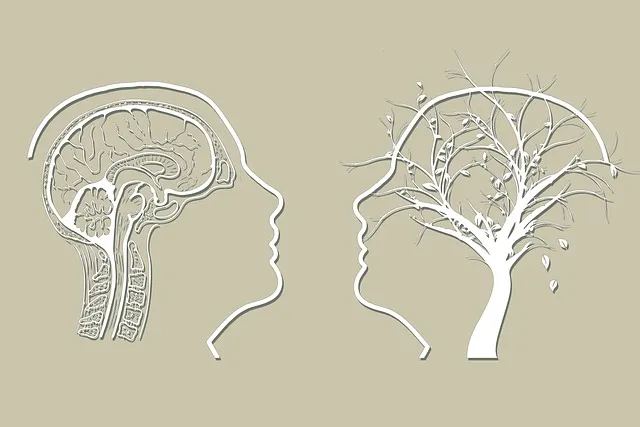The Lakewood Kaiser Permanente mental health center, under its owner's leadership, excels in Crisis Intervention Team (CIT) training. CIT members are equipped with compassion cultivation practices, emotional regulation, and mood management skills to de-escalate crises, ensuring patient safety and positive outcomes. Their holistic approach combines social skills, resilience building, and depression prevention, catering to diverse needs. The center's specialized training programs teach early crisis recognition, cultural sensitivity, and effective de-escalation techniques, enhancing team capabilities for empathetic conflict resolution. Through these initiatives, Lakewood Kaiser Permanente fosters a safer environment and becomes a beacon of hope within the community.
“Crisis intervention teams (CITs) play a pivotal role in mental health care, providing immediate support during crises. This article explores the critical work of these teams and delves into effective training programs. We examine the innovative practices at Lakewood Kaiser Permanente Mental Health Center, owned by the healthcare pioneer, as a model for excellence. From understanding CITs’ lifesaving roles to key training components and successful real-world applications, this guide highlights strategies for managing crises and de-escalation techniques. Discover how these programs empower professionals to make a tangible difference.”
- Understanding Crisis Intervention Teams: A Lifesaving Role in Mental Health Care
- Lakewood Kaiser Permanente Mental Health Center: A Model for Training Excellence
- Components of Effective Crisis Intervention Team Training Programs
- Strategies and Techniques for Crisis Management and De-escalation
- Real-World Impact: Success Stories from the Field
Understanding Crisis Intervention Teams: A Lifesaving Role in Mental Health Care

Crisis Intervention Teams (CITs) play a pivotal role in mental health care, especially within healthcare centers like the Lakewood Kaiser Permanente mental health center. These specialized teams are designed to provide immediate and effective support during crises, ensuring patient safety and offering evidence-based interventions. CIT members receive training in various skills, including Compassion Cultivation Practices, which foster understanding and empathy towards individuals experiencing a crisis.
By implementing these strategies, such as Emotional Regulation and Mood Management techniques, team members can help de-escalate situations, reduce harm, and promote positive outcomes. The presence of well-trained CITs creates a safer environment for patients, staff, and the community at large, reflecting the commitment of healthcare centers like Lakewood Kaiser Permanente to comprehensive mental health care services.
Lakewood Kaiser Permanente Mental Health Center: A Model for Training Excellence

The Lakewood Kaiser Permanente Mental Health Center stands as a beacon of excellence in crisis intervention team (CIT) training programs. As the owner and operator of this esteemed facility, they have meticulously crafted a model that combines comprehensive mental health services with innovative CIT training. This unique approach ensures that participants gain not only specialized knowledge but also practical skills to effectively manage and de-escalate crises.
The center’s program emphasizes social skills training and resilience building, equipping individuals with the tools to navigate challenging situations. By focusing on these aspects alongside depression prevention strategies, the Lakewood Kaiser Permanente Mental Health Center offers a holistic approach that caters to diverse needs. Their expertise in the field has made them a go-to resource, inspiring other institutions to elevate their CIT training standards.
Components of Effective Crisis Intervention Team Training Programs

Effective crisis intervention team (CIT) training programs are meticulously crafted to equip healthcare professionals with a multifaceted approach to managing psychological crises. These programs typically encompass a diverse range of components, each playing a crucial role in enhancing the team’s capabilities. Firstly, they delve into intensive mental health awareness training, fostering an understanding of various conditions and their symptoms. This knowledge enables CIT members to recognize signs early on, a vital aspect in providing timely interventions.
Secondly, conflict resolution techniques are at the core of these programs, teaching teams how to navigate challenging situations with empathy and de-escalation strategies. In the context of the Lakewood Kaiser Permanente mental health center by owner, where cultural sensitivity in mental healthcare practice is paramount, training should incorporate scenarios reflecting diverse cultural backgrounds and beliefs. This ensures that CIT members can offer tailored support, respecting individual needs and promoting positive outcomes for all patients.
Strategies and Techniques for Crisis Management and De-escalation

Crisis intervention team training programs equip professionals with essential strategies for managing and de-escalating crises effectively. At the Lakewood Kaiser Permanente mental health center by owner, these techniques are tailored to address a range of high-stress situations. The core approach often revolves around building rapport, active listening, and employing non-violent communication methods. By fostering an environment of understanding and empathy, team members can defuse tension and facilitate open dialogue.
Inner Strength Development and Mind Over Matter Principles are integral components of these strategies. Training emphasizes the importance of resilience and self-care for crisis responders. Mental Health Policy Analysis and Advocacy skills also come into play, equipping teams to navigate complex situations with professionalism and advocate for evidence-based practices that promote positive mental health outcomes.
Real-World Impact: Success Stories from the Field

At the Lakewood Kaiser Permanente mental health center, owned by a dedicated team committed to community well-being, the impact of crisis intervention training is vividly evident. Through their programs, healthcare professionals and volunteers have successfully navigated numerous high-pressure situations, offering life-saving support to individuals in crisis. These interventions not only de-escalate potentially dangerous scenarios but also foster coping skills development and mental wellness among those served.
The center’s success stories highlight the power of empathy building strategies implemented through their training. By equipping team members with advanced techniques for understanding and responding to complex emotional states, Lakewood Kaiser Permanente has become a beacon of hope in the community. Their approach ensures that every interaction is handled with care, promoting positive outcomes and contributing significantly to the overall mental health ecosystem.
Crisis intervention team (CIT) training programs, as demonstrated by the exemplary initiatives at Lakewood Kaiser Permanente Mental Health Center, are invaluable assets in enhancing mental health care. These comprehensive programs equip healthcare professionals with essential skills for managing crises and de-escalating situations effectively. By integrating real-world strategies and techniques, CIT training fosters a culture of support and resilience within healthcare settings. The success stories shared highlight the profound impact these teams have on individuals in distress, making these training programs a game-changer in the field of mental health care, as evidenced by their owner’s commitment to excellence at Lakewood Kaiser Permanente.






